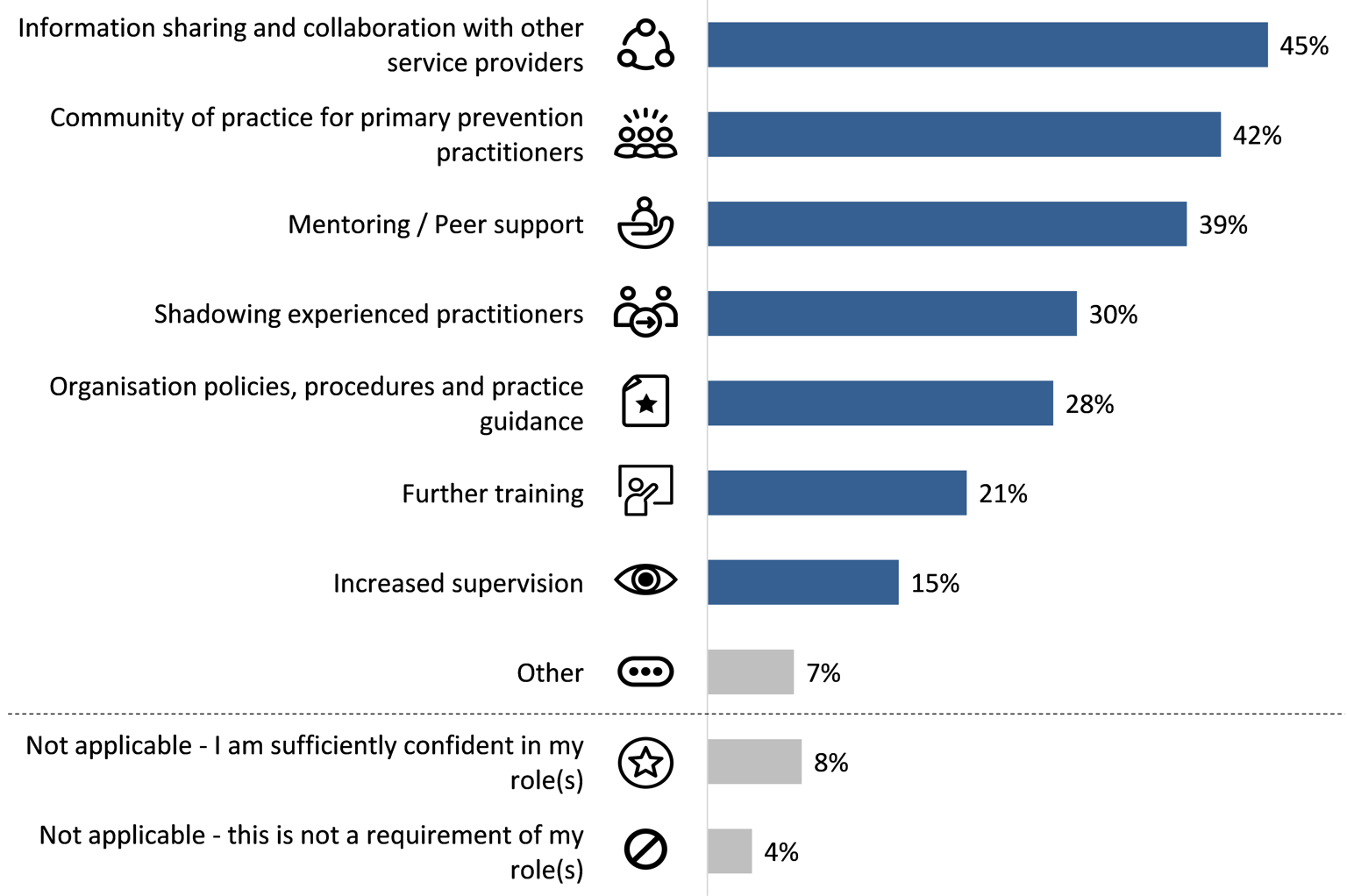Overall, around half of the primary prevention workforce indicated that they were ‘extremely’ or ‘very’ confident that they have had enough training and experience to perform their role(s) effectively (49%). In contrast, 14% reported that they were ‘slightly’ or ‘not at all’ confident.
The primary prevention workforce felt that the following additional support would be most useful in increasing their confidence in performing their role(s) (see Figure 10):
- information sharing and collaboration with other service providers (45%);
- community of practice for primary prevention practitioners (42%); and
- mentoring / peer support (39%).
Conversely, respondents were least likely to indicate that further training or increased supervision would be beneficial in this context (21% and 15% respectively).
Results differed by age – younger respondents aged under 35 were considerably more likely than older respondents aged over 55 to report that they would benefit from shadowing experienced practitioners (45% versus 14%), mentoring / peer support (43% versus 25%), and organisation policies, procedures and practice guidance (34% versus 17%).
Overall, around one-fifth of the primary prevention workforce reported that they frequently respond to family violence disclosures (21% always or often).
Frequency varied across the following demographic cohorts:
- Years of experience – frequency increased with years of experience (11% for those with 1 year of experience or less, compared to 35% for those with over 10 years’ experience).
- Organisation type – response to family violence disclosures was most frequent among those employed in legal services (36%), multicultural or settlement services (31%), and community organisations (31%); and least frequent among those working in policy, research and advocacy (7%), and local council / government (10%).
Updated


